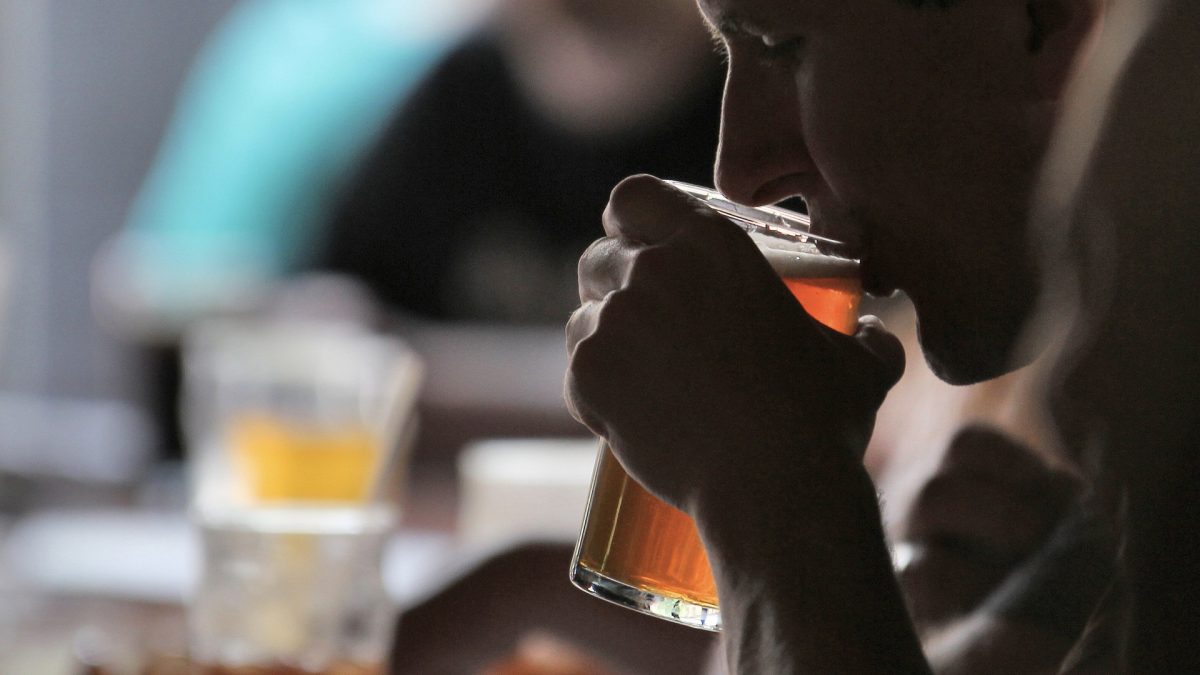
Alcohol
According to a famous series of papers in the Journal of the American Medical Association called the “Actual Causes of Death in the United States,” the leading killer of Americans in the year 2000 was tobacco, followed by diet and inactivity. The third-leading killer? Alcohol. About half of alcohol-related deaths were due to sudden causes like motor vehicle accidents; the other half were slower, and the leading cause was alcoholic liver disease.
Excessive alcohol consumption can lead to an accumulation of fat in the liver (known as fatty liver), which can cause inflammation and result in liver scarring and, eventually, liver failure. The Centers for Disease Control and Prevention defines excessive drinking as the regular consumption of more than one drink a day for women and more than two a day for men. A drink is defined as 12 ounces of beer, 8 ounces of malt liquor, 5 ounces of wine, or 1.5 ounces (a “shot”) of hard liquor. Progression of the disease can usually be halted by stopping drinking, but sometimes it’s too late.
Once alcohol-induced hepatitis (liver inflammation) is diagnosed, three-year survival rates can be as high as 90 percent among people who stop drinking after diagnosis. But as many as 18 percent of them go on to develop cirrhosis, an irreparable scarring of the liver.
Alcohol consumption may also play a role in pancreatic cancer, among the most lethal forms of cancer, with just 6 percent of patients surviving five years after diagnosis. As many as 20 percent of pancreatic cancer cases may be a result of tobacco smoking, and other modifiable risk factors include obesity and heavy alcohol consumption.
Similarly, the primary risk factors for esophageal cancer include smoking and heavy alcohol consumption (though even light drinking appears to increase risk), as well as gastroesophageal reflux disease (GERD, also called acid reflux).
What about cancer of the breast? In 2010, the official World Health Organization body that assesses cancer risks formally upgraded its classification of alcohol to a definitive human breast carcinogen. In 2014, it clarified its position by stating that, regarding breast cancer, no amount of alcohol is safe.
But what about drinking “responsibly”? In 2013, scientists published a compilation of more than one hundred studies on breast cancer and light drinking (up to one alcoholic beverage a day) and found a small but statistically significant increase in breast cancer risk even among women who had at most one drink per day—except, perhaps, for red wine. Why red wine? A compound in it appears to suppress the activity of an enzyme called estrogen synthase, which breast tumors can use to create estrogen to fuel their own growth. This compound is found in the skin of the dark-purple grapes used to make red wine, which explains why white wine appears to provide no such benefit, since it’s produced without the skin.
The researchers concluded that the grapes in red wine may help cancel out some of the cancer-causing effects of the alcohol. But you can reap the benefits without the risks associated with imbibing alcoholic beverages by simply drinking grape juice or, even better, eating the purple grapes themselves—preferably ones with seeds, as they may be most effective at suppressing estrogen synthase.
For substantiation of any statements of fact from the peer-reviewed medical literature, please see the associated videos below.
Popular Videos for Alcohol

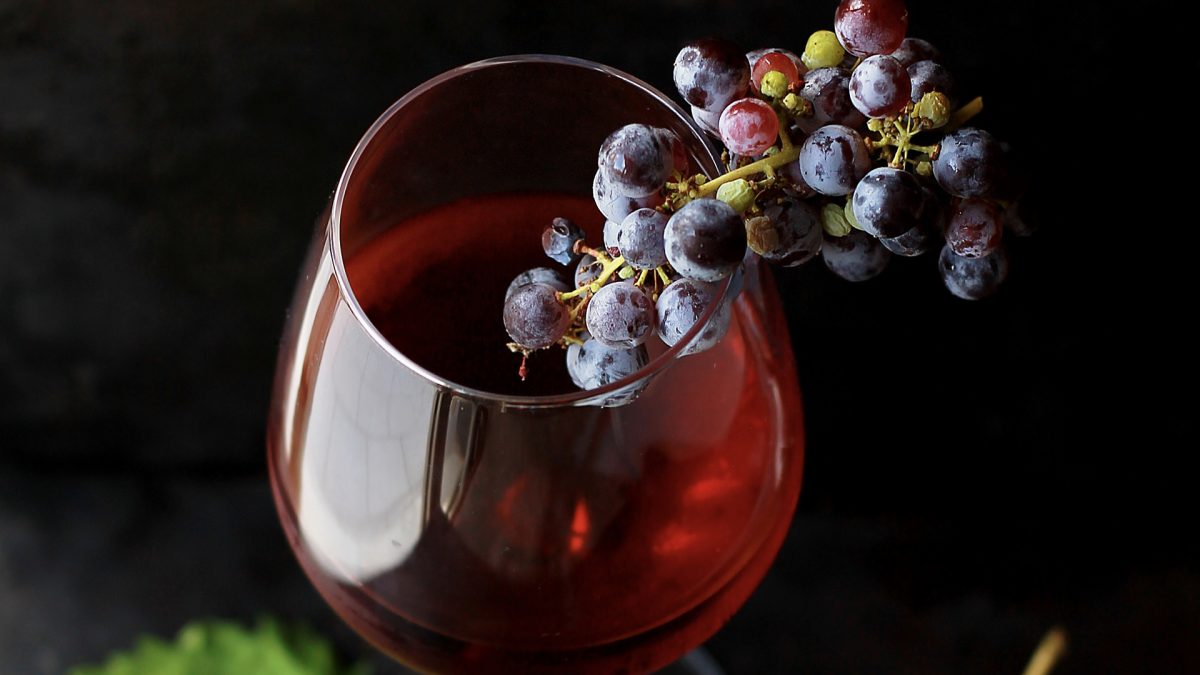
The Best Source of Resveratrol
Is there any benefit to resveratrol? If so, should we get it from wine, grapes,...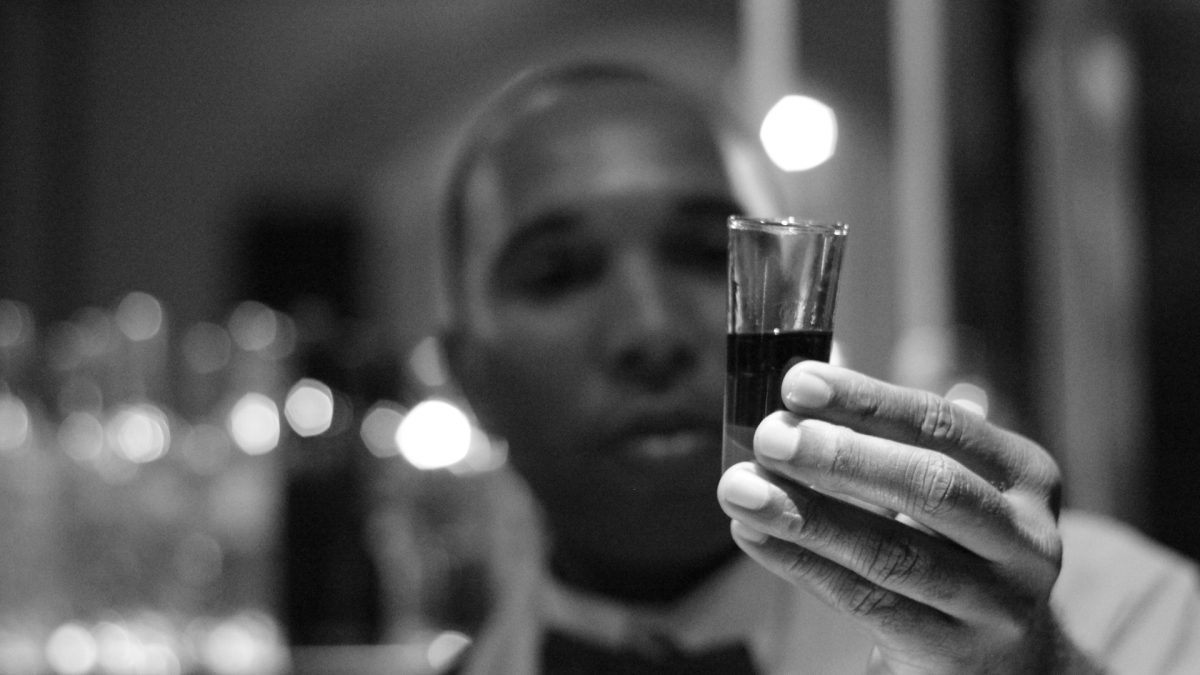
Is It Better to Drink a Little Alcohol Than None at All?
Even if alcohol causes cancer and there is no “French paradox,” what about the famous...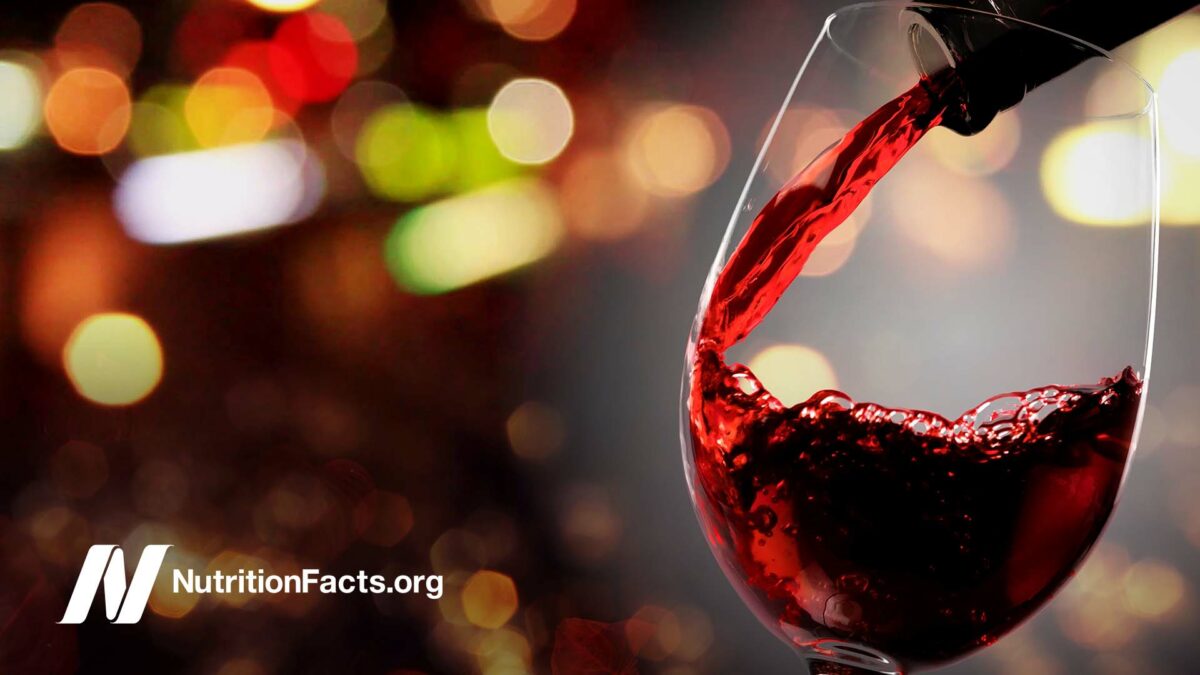
Do Any Benefits of Alcohol Outweigh the Risks?
What would happen if you effectively randomized people at birth to drink more or less...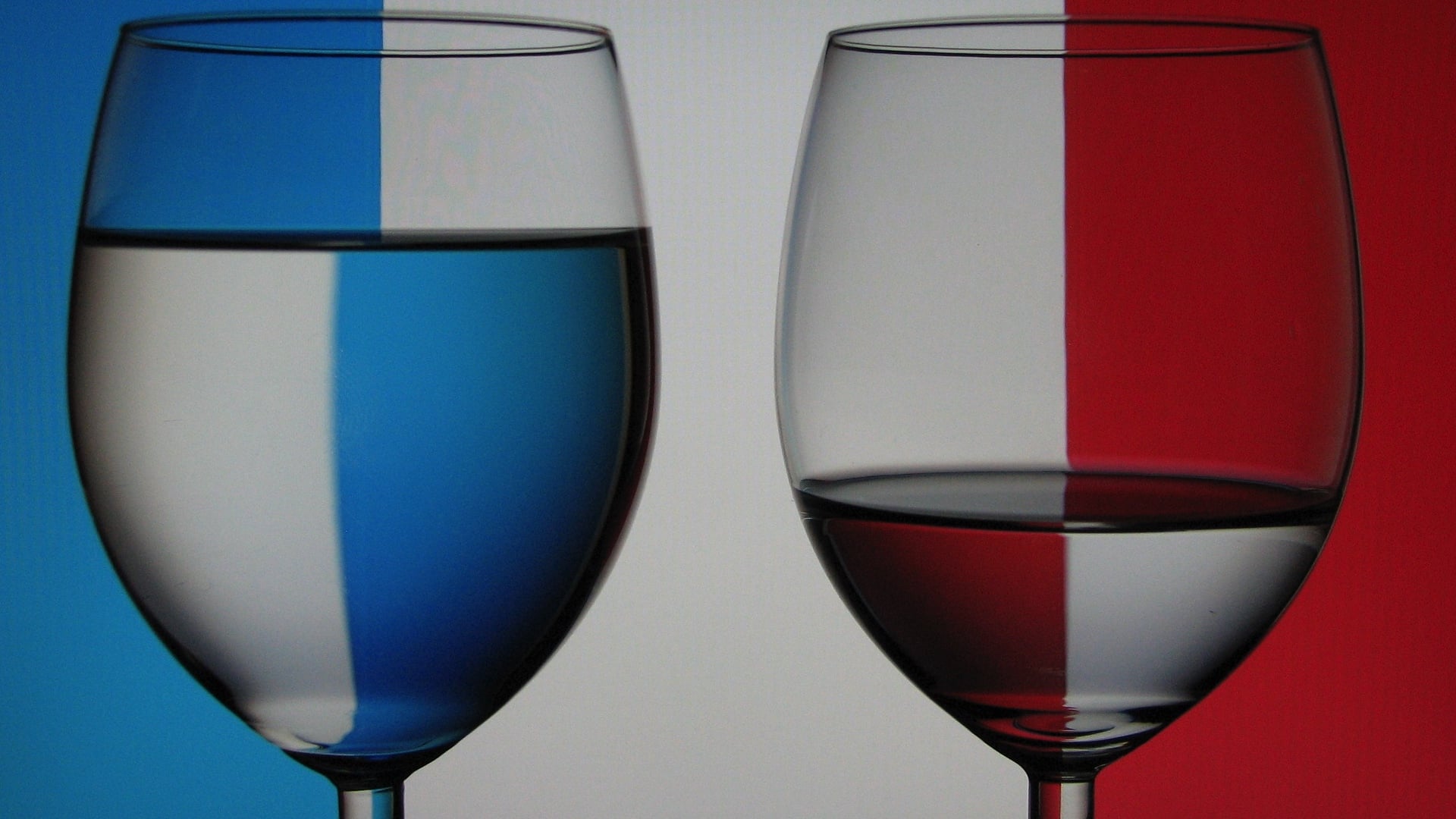
What Explains the French Paradox?
Why do heart attack rates appear lower than expected in France, given their saturated fat...
Breast Cancer and Alcohol: How Much Is Safe?
Nearly 5,000 breast cancer deaths a year may be attributable to just light drinking (up...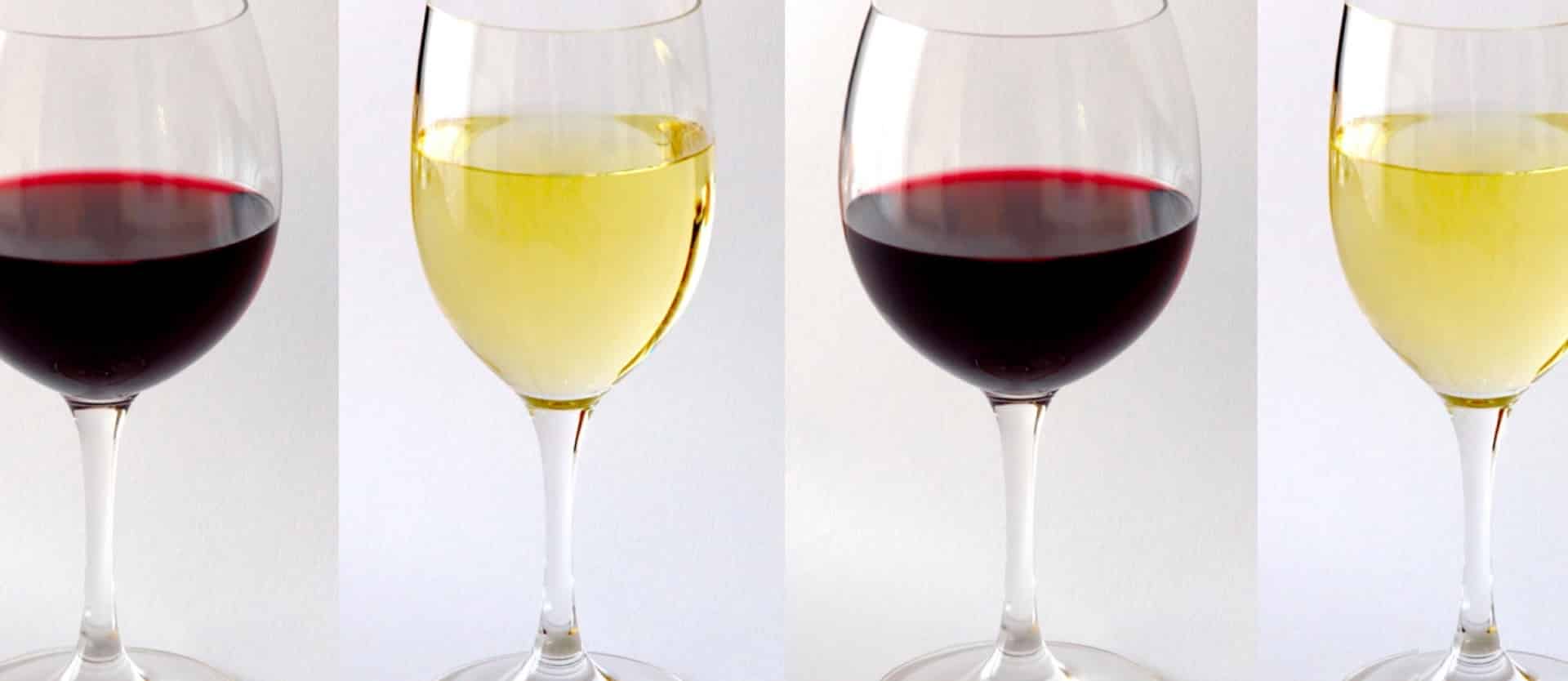
Breast Cancer Risk: Red Wine vs. White Wine
Modest lifestyle changes that include the avoidance of alcohol may cut the odds of breast...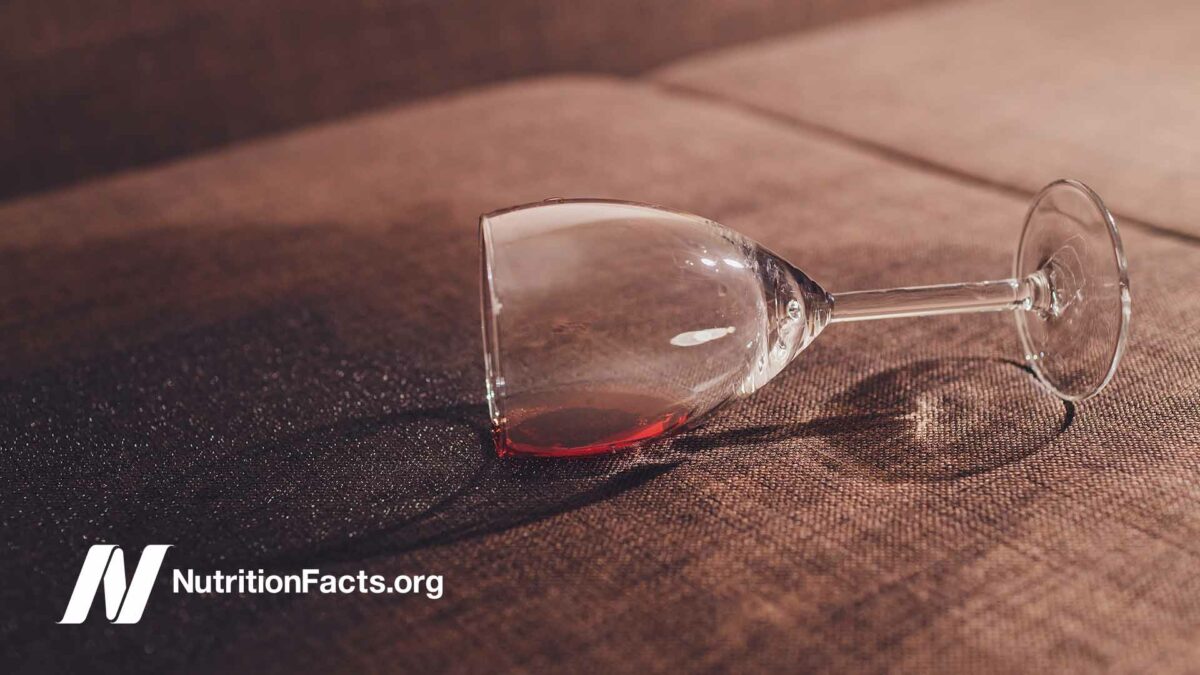
Resveratrol Impairs Exercise Benefits
Research on resveratrol, a component of red wine, looked promising in rodent studies, but what...All Videos for Alcohol
-

Hepatitis E Virus in Pork
At a retail level, about 10 percent of commercial pork products tested contain the hepatitis E virus.
-

Anti-Inflammatory Foods: The Benefits of Berries
Which fruits have anti-inflammatory effects and which do not?
-

Side Effects of Metformin as a Life-Extension Drug
As a mild mitochondrial poison, metformin carries a variety of downsides.
-

Side Effects of Resveratrol Supplements
Resveratrol supplements may blunt some of the positive effects of exercise training.
-

Resveratrol Tested for Alzheimer’s, Arthritis, and Osteoporosis
Resveratrol appears to triple the rate of age-related brain shrinkage.
-

Does Resveratrol Benefit Our Metabolic Health?
Which conditions have resveratrol supplements been shown to help?
-

Does Resveratrol Make You Live Longer?
Is the red wine molecule resveratrol responsible for the “French paradox”?
-

How to Delay the Age of Menopause with Diet and Lifestyle Factors
Approximately half of the variability of age of menopause among women is explained by genetics. What behaviors or circumstances can help explain the rest?
-

How Not To Age – Live Presentation
In this live lecture, Dr. Greger offers a sneak peek into his latest book, How Not to Age, a New York Times Best Seller.
-

How to Get a Good Night’s Sleep Without Sleeping Pills
Taking less than just 18 Ambien-class sleeping pills in an entire year may triple the risk of dying prematurely.
-

Greens, Green Tea, and Nuts Put to the Test for Telomeres
Not all plant foods are linked to less cellular aging based on telomere attrition, and not all animal foods are linked to more.
-

Are Beer, Bananas, and B Vitamins Mosquito Repellents?
What happens when mosquitos put on beer goggles?
-

Fecal Transplants for Ulcerative Colitis, MS, Depression, Bipolar, and Alcoholism
I go over randomized, controlled trials and case reports of stool transplants for various clinical conditions.
-

Does Tongue Scraping Cause Cancer?
Tongue cleaning should be carried out gently with low pressure to avoid unnecessary tissue trauma.
-

The Best Diet for Cancer Patients
What diet should oncologists recommend?
-

Diet and Lifestyle for Cancer Prevention and Survival
What kind of diet should cancer patients eat?
-

Using the Cigarette Tax Playbook Against Big Food
How might we replicate one of our great public health victories—the reduction of smoking rates—in the field of nutrition?
-

The Best Diet for Treating Atrial Fibrillation
What foods should we eat and avoid to reduce our risk of Afib?
-

How Much Does Meat Affect Longevity?
If you care about your health so much that it would be unthinkable to light up a cigarette before and after lunch, maybe you should order a bean burrito instead of a meaty one.
-

Supplements for Hair Growth
Might biotin or zinc supplements prevent hair loss in men and women?
-

IARC: Processed Meat Like Bacon Causes Cancer
How did the meat industry, government, and cancer organizations respond to the confirmation that processed meat, like bacon, ham, hot dogs, and lunch meat, causes cancer?
-

Do Potatoes Increase the Risk of High Blood Pressure and Death?
Do potato eaters live longer or shorter lives than non-potato eaters?
-

Fighting the Ten Hallmarks of Cancer with Food
The foundation of cancer prevention is plants, not pills.
-

How Useful Is Personalized Nutrition?
Perhaps it should be less about personalized nutrition and more about taking personal responsibility for your health.
-

Avoid These Foods to Prevent a Leaky Gut
Avoid these foods for leaky gut prevention: common drugs, foods, and beverages can disrupt the integrity of our intestinal barrier.
-

Ochratoxin in Certain Herbs, Spices, and Wine
Most food crops are contaminated with fungal mycotoxins, but some foods are worse than others.
-

Win-Win Dietary Solutions to the Climate Crisis
The EAT-Lancet Commission lays out the best diet for human and planetary health.
-

The Effects of Marijuana on Car Accidents
Did traffic fatalities go up or down after cannabis legalization?
-

Hand Washing and Sanitizing to Inactivate COVID-19 Coronavirus
My recipes for DIY hand sanitizer and surface disinfectant for SARS-CoV-2.
-

The Role of Corporate Influence in the Obesity Epidemic
Like the tobacco industry adding extra nicotine, the food industry employs taste engineers to accomplish a similar goal: maximize the irresistibility of their products.
-

The Role of Food Advertisements in the Obesity Epidemic
We all like to think we make important life decisions like what to eat consciously and rationally, but if that were the case we wouldn’t be in the midst of an obesity epidemic.
-

What Are the Best Beverages?
A review of reviews on the health effects of tea, coffee, milk, wine, and soda.
-

Foods That Help Headache and Migraine Relief
Plant-based diets are put to the test for treating migraine headaches.
-

How to Lower Blood Pressure Naturally with Lifestyle Changes
The effect of fasting to lower blood pressure compared to medications, cutting down on alcohol, meat and salt, eating more fruits and vegetables, or eating completely plant-based.
-

What the New Blood Pressure Range Guidelines Mean
Natural approaches to lowering high blood pressure can work better than drugs because you’re treating the underlying cause, and can end up having only good side effects.
-

Is Vegan Food Always Healthy?
Healthier plant-based diets compared to unhealthy plant foods and animal foods on diabetes risk.
-

Long-Term Effects of Toxoplasmosis Brain Infection
The effect of toxoplasma brain parasites can cause personality alterations.
-

Dairy and Cancer
How do we explain the increased risk of prostate cancer but the decreased risk of colon cancer associated with dairy consumption?
-

The Best Advice on Diet and Cancer
What does the best available balance of evidence say right now about what to eat and what to avoid to reduce your risk of cancer?
-

How to Treat Jet Lag with Melatonin-Rich Food
There may be a way to get the benefits of over-the-counter melatonin supplements without the risk.
